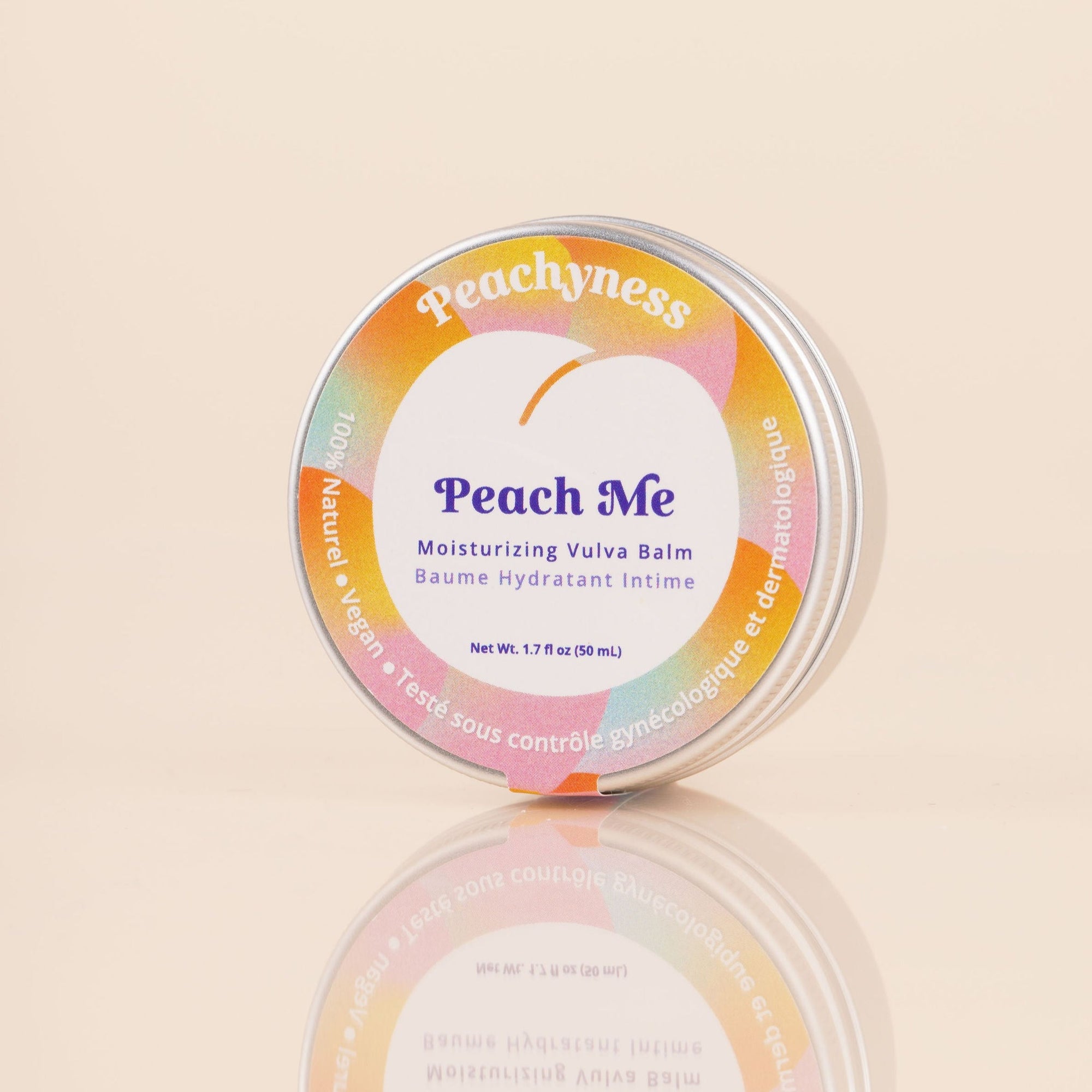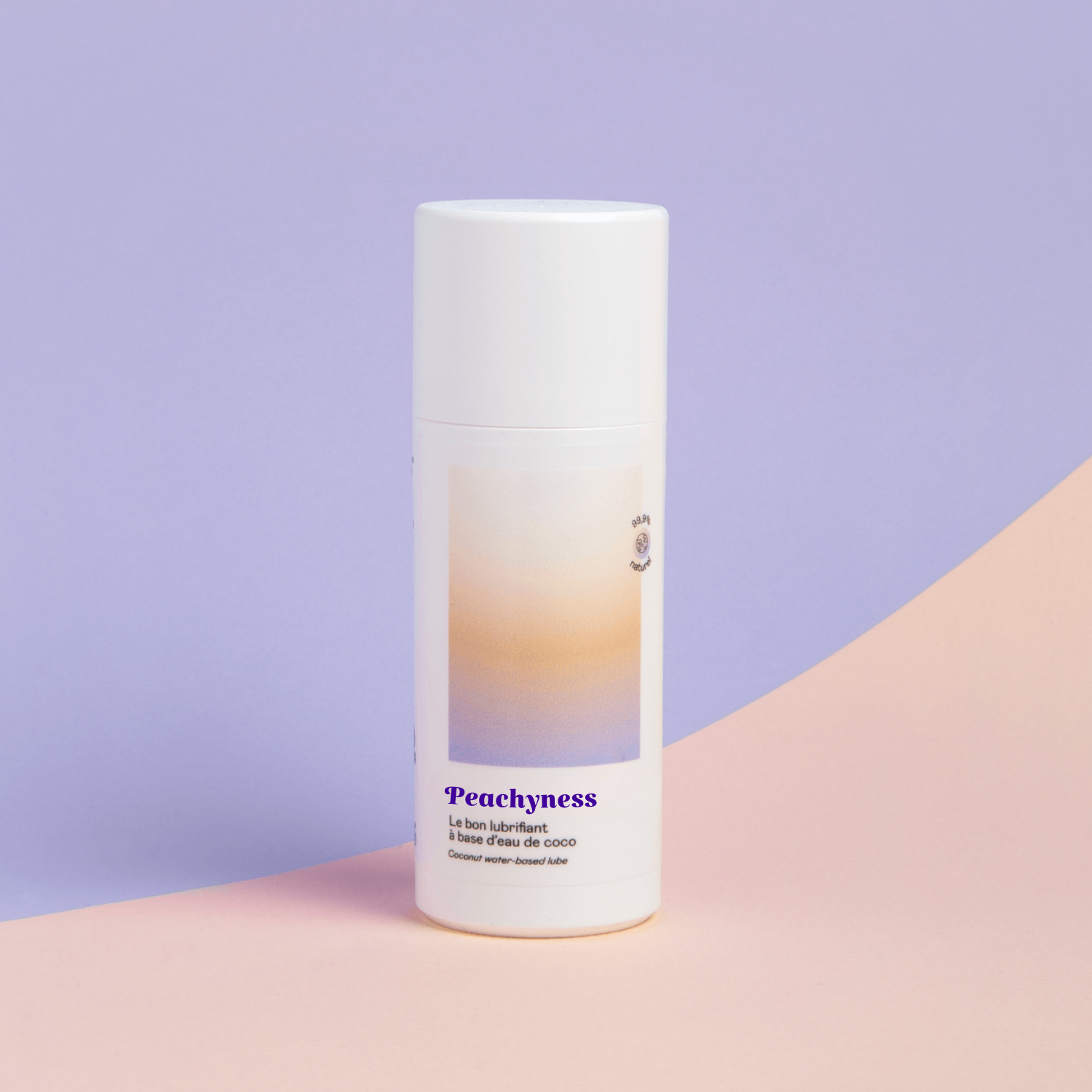
Vaginal Dryness: Causes, Symptoms and Treatment
Vaginal dryness can be caused by several factors, including aging, menopause, certain diseases such as diabetes or high blood pressure, certain medications, smoking, ovarian surgery, breastfeeding, or even stress.
Symptoms of vaginal dryness can include burning or irritation, itching, pain during intercourse, bleeding after intercourse, white vaginal discharge, or frequent vaginal infections.
There are several treatments for vaginal dryness, including moisturizing creams and gels, lubricants, hormonal supplements, oral medications, and alternative therapies like acupuncture or massage.
It is important to speak with your doctor to determine the underlying cause of your vaginal dryness and find the treatment that is best for you.
Vaginal dryness can be really uncomfortable, but luckily it can often be explained away. This article explains the causes of vaginal dryness and pain, as well as ways to treat them.

Vaginal dryness is a well-known source of discomfort, accompanied by symptoms such as pain, itching and painful intercourse. This condition can also have negative effects on various aspects of life, such as sleep and relationships.
Although often associated with menopause, vaginal dryness can occur at any age and for a variety of reasons (see below).
It is estimated that around 17% of women under 50 and more than half of women over 51 have experienced symptoms of vaginal dryness at some point in their lives. Fortunately, the causes of vaginal dryness can often be explained, and there are many ways to relieve symptoms and improve quality of life.
In this article, we'll explain the causes of vaginal dryness, steps you can take to relieve your symptoms, and when to tell your healthcare professional.
What is vaginal dryness?
For starters, vaginal dryness is basically what it sounds like – dryness caused by a lack of moisture in the vagina.
Usually there is a natural layer of moisture covering the vaginal wall. It may have a fine texture and be sticky to the touch. The production of this fluid depends entirely on blood flow to your vagina. The cells in your vagina are sensitive to the hormone estrogen, which can really influence how dry you feel there (more on that below).
Vaginal dryness is most often linked to menopause, which is due to hormonal changes. Your healthcare professional might describe it as vaginal atrophy (when the walls of your vagina become thinner, drier, or irritated). This can happen during the transition to menopause (sometimes described as perimenopause). It is estimated that 45% of postmenopausal women will develop vaginal atrophy.
However, vaginal dryness isn't just uncomfortable. A recent study looked at its impact on the quality of life of pre-menopausal and post-menopausal women. She concluded that people who suffered from vaginal dryness were more likely to see an impact on their work and home lives. It's not something you should have to deal with on your own, so talk to your healthcare professional about what treatments might work for you (more on that below).
Symptoms of Vaginal Dryness
How do you know if you have vaginal dryness rather than another problem that needs special attention? Here are the main symptoms:
- A feeling of dryness in the vulva and vagina area (you may experience irritation, inflammation, itching, tenderness or pain)
- Discomfort of the vulvar area after going to the toilet
- Bleeding after penetrative sex
- Discomfort when wearing a tampon or menstrual cup
- Irritation due to certain sitting positions or walking or running.
If you're experiencing low libido in addition to vaginal dryness and pain, you're not alone.
Vaginal dryness can also contribute to having pain during intercourse. Indeed, natural lubrication can make intercourse easier and more pleasant, which is lacking in vaginal dryness .
It can impact your relationships and your daily mood, which can lead to anxiety and stress.
It's important to remember that you should never feel pressured into having sex if you don't feel comfortable or want to! If you are nervous about talking to your partner or if you don't know how to talk to them about it, do not hesitate to talk about it with your gynecologist, midwife or doctor, who will be able to accompany you.
What are the causes of vaginal dryness?
Although vaginal dryness can significantly disrupt daily life, the good news is that we understand many of the causes of this phenomenon. According to Dr. Twogood, "vaginal dryness is usually caused by low estrogen levels." It is common to see a drop in estrogen "after menstruation [temporarily], in the postpartum phases, [and] during breastfeeding...". After menopause, this decline becomes permanent.
Estrogen is one of the hormones responsible for regulating the menstrual cycle. It plays a crucial role in maintaining blood flow to the vagina, triggering the production of natural vaginal lubrication.
If estrogen levels drop, the body slows down or pauses this process. The tissues of the vulva and vagina may also become thinner and more delicate. The consequence ? Vaginal walls that are less flexible and more vulnerable to inflammation and irritation.
Vaginal dryness is often associated with menopause, as this is when estrogen levels drop significantly. However, there are other factors that can cause pain or irritation:
Hormonal changes:
- Breastfeeding and childbirth change your hormone levels. Estrogen levels will be low.
- Hormonal birth control (such as the pill or hormonal IUDs) causes your natural estrogen levels to decrease.
- In some cases, chemotherapy and hormone therapy to treat cancers can affect how your ovaries work and change your body's ability to produce estrogen.
Non-hormonal causes:
- Cold and allergy medications can have a drying effect on the whole body.
- Some antidepressants, such as selective serotonin reuptake inhibitors (SSRIs), can reduce the amount of lubrication your body produces.
- Sjögren's syndrome is a condition that affects your body's ability to produce fluids such as saliva, tears, and secretions.
- Chronic anxiety and stress can affect blood flow to your vagina, which will, in turn, impact the amount of natural lubrication you can create.
- Using products that are scented or harsh on your vulva can impact and irritate the walls of your vagina and the natural pH balance of your vagina. This can cause conditions like vaginitis and leave you feeling dry and irritated.
- You may experience vaginal dryness during sex or intimacy, if you are not aroused (or stimulated), or if you are not ready for penetrating sex.
Depending on your age and if you are approaching menopause, the reasons why you may experience vaginal dryness may vary. Here's what you can expect.
Vaginal dryness before and after intercourse
You may have noticed that your discharge (white discharge/cervical mucus) changes throughout your cycle. You may feel drier at certain times of the month. This is completely normal.
Day 1 of your cycle is the first day of your period (which is easy to determine if you track your cycle). During your period, your estrogen and progesterone levels are low. After your period ends, your estrogen levels rise. This is called the follicular phase.
Your estrogen levels peak before ovulation (when your ovaries release an ovary (egg) for fertilization, roughly around day 14 of your cycle (- note the day you ovulate varies from person to person). to another).This may mean that your discharge is similar in consistency to an egg white, and you are less likely to experience vaginal dryness.As your estrogen levels drop again a little soon after ovulation, you may feel drier or more irritated.
Vaginal dryness during menopause
The main reason for low estrogen, and therefore vaginal dryness, is often menopause.
In addition to vaginal dryness, other common symptoms include lower libido and hot flashes. They are both caused by a drop in estrogen levels.
While the average age of menopause in the United States is 51, you might experience symptoms earlier.
You may not think of menopause yet if you're in your 30s, but some people may experience menopausal symptoms between the ages of 30 and 50, which is called peri-menopause.
If you experience certain symptoms, do not hesitate to talk to your doctor or healthcare professional, who will be able to accompany you and explain to you, in detail, the stages of this transition. And if necessary, prescribe treatment that suits your lifestyle.
Vaginal dryness after childbirth and during breastfeeding
During pregnancy, your estrogen and progesterone levels increase dramatically. As your placenta develops, it will also begin to release estrogen and progesterone.
However, your hormone levels do not stay high after giving birth. Within 24 hours of birth, your estrogen and progesterone levels return to "normal", the level they were before your pregnancy. Since estrogen is responsible for stimulating blood flow to the vagina, you may find that you feel drier or more irritated postpartum.
Your body will start producing prolactin (the hormone that encourages your breasts to grow and triggers milk production) before you give birth. If you choose to breastfeed your baby, then your estrogen levels will drop further, as estrogen can affect your ability to produce milk.

Treatment of vaginal and/or vulvar dryness
It is normal to feel frustrated if you have been/are facing vaginal dryness. However, the good news is that there are several treatments available to help you.
How do you determine which option is best for you?
It all depends on the cause.
Estrogen creams and tablets can be applied to your vagina (topically) and will slowly help increase estrogen. They act locally, meaning they will increase your estrogen levels specifically in your vagina. There are other prescription medications that your doctor or gynecologist can prescribe.
If the causes of your vaginal dryness are not hormonal, using oils such as jojoba, olive, or coconut oil as vulvovaginal moisturizers may also be helpful. Topical lubricants and moisturizers can provide faster relief from pain and discomfort. But it is essential to check the label first. Although they may smell nice, you should avoid using heavily scented products on your vulva.
Obviously, we advise you to test our moisturizing balm for the vulva, PEACH ME , 100% natural and composed of 8 oils, butter and waxes (including jojoba and coconut oil), to soothe your ailments.
How to deal with vaginal dryness
It is sometimes impossible to completely prevent vaginal dryness. However, paying attention to your body, identifying symptoms when they arise, and treating early can help make treatment more effective or work faster.
Here are some suggestions you might consider:
- Lubricants: Lubricants can help relieve pain during sex if you suffer from mild to moderate vaginal dryness. If you use latex protection, such as condoms, oil-based products should be avoided. Oil degrades latex and makes condoms more fragile/breakable.
- Avoid scented products: The skin around your vagina is especially sensitive, and something as simple as changing your soap or detergent can irritate your skin. Try to avoid any strongly scented products.
- Vaginal moisturizer: Vaginal moisturizer is a kind of cream applied inside the vagina to keep it moist. Speak to your midwife or gynecologist. You are advised to avoid anything with flavors, colors or fragrances, which can be irritating.
- Avoid smoking: Smoking reduces blood circulation, which could mean less blood and oxygen reaching your vagina. Smoking can also reduce the activity of estrogen produced by your body.
- Have regular sex: blood flow to vaginal tissues increases when a woman is sexually aroused, so having sex is actually one of the best things you can do to reduce the severity of vaginal dryness . Keep in mind that this doesn't have to involve penetration or a partner.
When to See a Doctor for Vaginal Dryness
If you notice unusual discharge, bleeding after intercourse or between periods, or vaginal dryness interfering with your daily life, contact your healthcare professional. You don't have to suffer in silence.
To determine what could be causing your dryness, your healthcare professional will start by taking your medical history. They may ask you about your menstrual cycle, sexual history, and any medical history.
They may then perform a pelvic exam where they look at the vaginal walls with a speculum (a piece of equipment often used during Pap smears to open up the vaginal walls). If they suspect you might have low hormone levels, you might also have a blood test.
Vaginal dryness: what to remember
Although vaginal dryness is most commonly linked to menopause, it can affect you at any time. Other life events, such as pregnancy, perimenopause, or changing birth control, can also cause dryness.
The good news is that it's often easy to treat, and you might not even need to visit your healthcare provider to have it done. Some over-the-counter remedies (such as lubricants and moisturizers made specifically for use on your vulva and/or vagina) may ease your discomfort.
Hormonal changes are part of life, but they don't have to keep you from living a normal life. If you have suffered in silence, you now have the necessary indications to start treating vaginal dryness.



